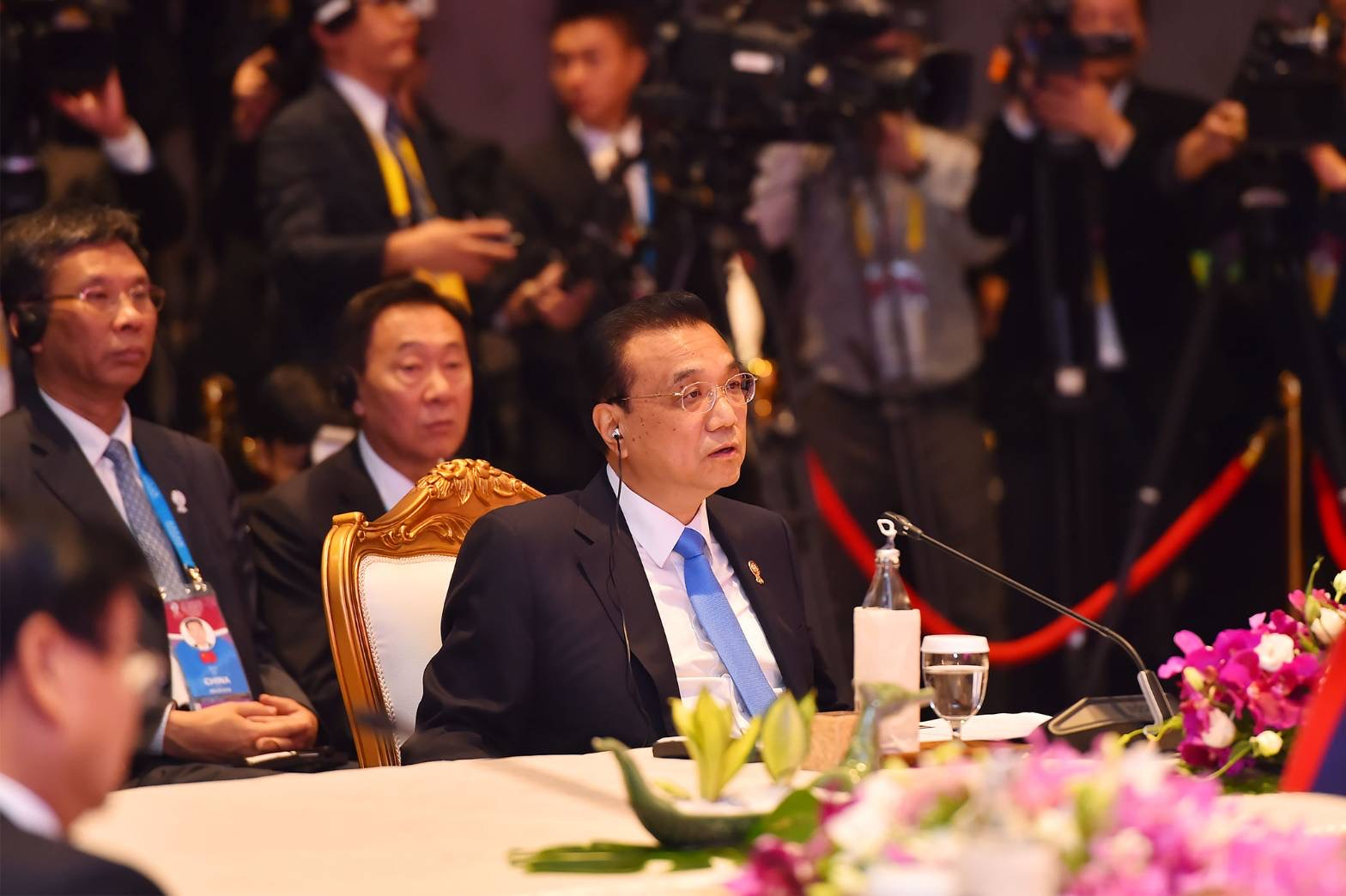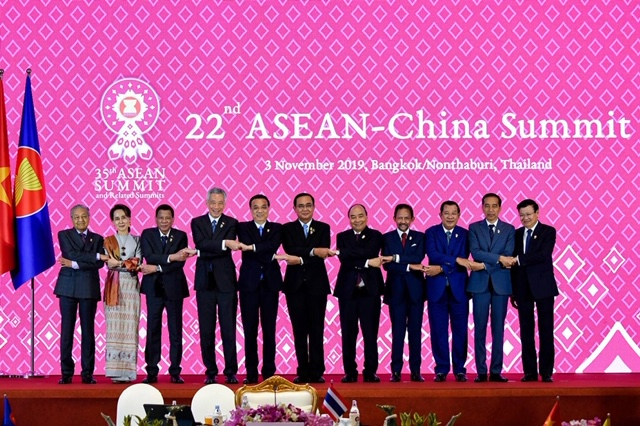From trade to tourism - and without ignoring tensions – Chinese Premier Li Keqiang addressed key issues at an ASEAN-China Summit, part of the 35th ASEAN Summit and Related Meetings in Bangkok on Sunday.
Foremost in the minds of those attending was the signing of the world's largest trade deal, with Asia at the center.
The Regional Comprehensive Economic Partnership – or RCEP – is designed to unite the ten countries of ASEAN (the Association of Southeast Asian Nations) with six more: China, India, Japan, South Korea, Australia and New Zealand. But notably, not the U.S.
Between them, the RCEP nations would represent almost half the world's population and a third of global trade.
It's hoped cutting or abolishing tariffs under the agreement would see lower prices for consumers and reduced raw-material costs for producers leading to greater competitiveness and a boost for exports.

Premier Li speaks in support of the Regional Comprehensive Economic Partnership in Bangkok on November 3, 2019. /CGTN Photo
Premier Li speaks in support of the Regional Comprehensive Economic Partnership in Bangkok on November 3, 2019. /CGTN Photo
Those involved believe RCEP would provide a buffer against events like the U.S.-China trade war, which has had a marked impact on both China and Southeast Asia, and provide a united platform for Asia in global trade negotiations.
"Together we will be able to cope with instability in other parts of the world," said Premier Li.
"China will stay committed to supporting ASEAN, particularly given the complexities and changes in the international and regional situation."
"Out of our co-operation has been formed a stable structure able to move forward in a positive fashion which is beneficial to the whole region."
Premier Li said good progress was being made between China and ASEAN on the formation of a Code of Conduct (CoC) for the South China Sea.
There have been tensions over territorial issues but a first reading of the CoC was completed ahead of schedule, leading to hopes the entire agreement could be in place within three years by the end of 2021.

Delegates line up at the 22nd ASEAN-China Summit in Bangkok on November 3, 2019. /CGTN Photo
Delegates line up at the 22nd ASEAN-China Summit in Bangkok on November 3, 2019. /CGTN Photo
Premier Li said the close relationship between China and ASEAN promoted mutual learning and forged a strong foundation for people-to-people exchanges.
He said: "Each side is the other's major tourist destination."
Mutual tourist visits totaled 57 million in the last 12 months, passing the 50 million mark for the first time.
"Each observed the other's laws and regulations and respected each other's customs and religions," said Premier Li, "giving high expectations for the future."